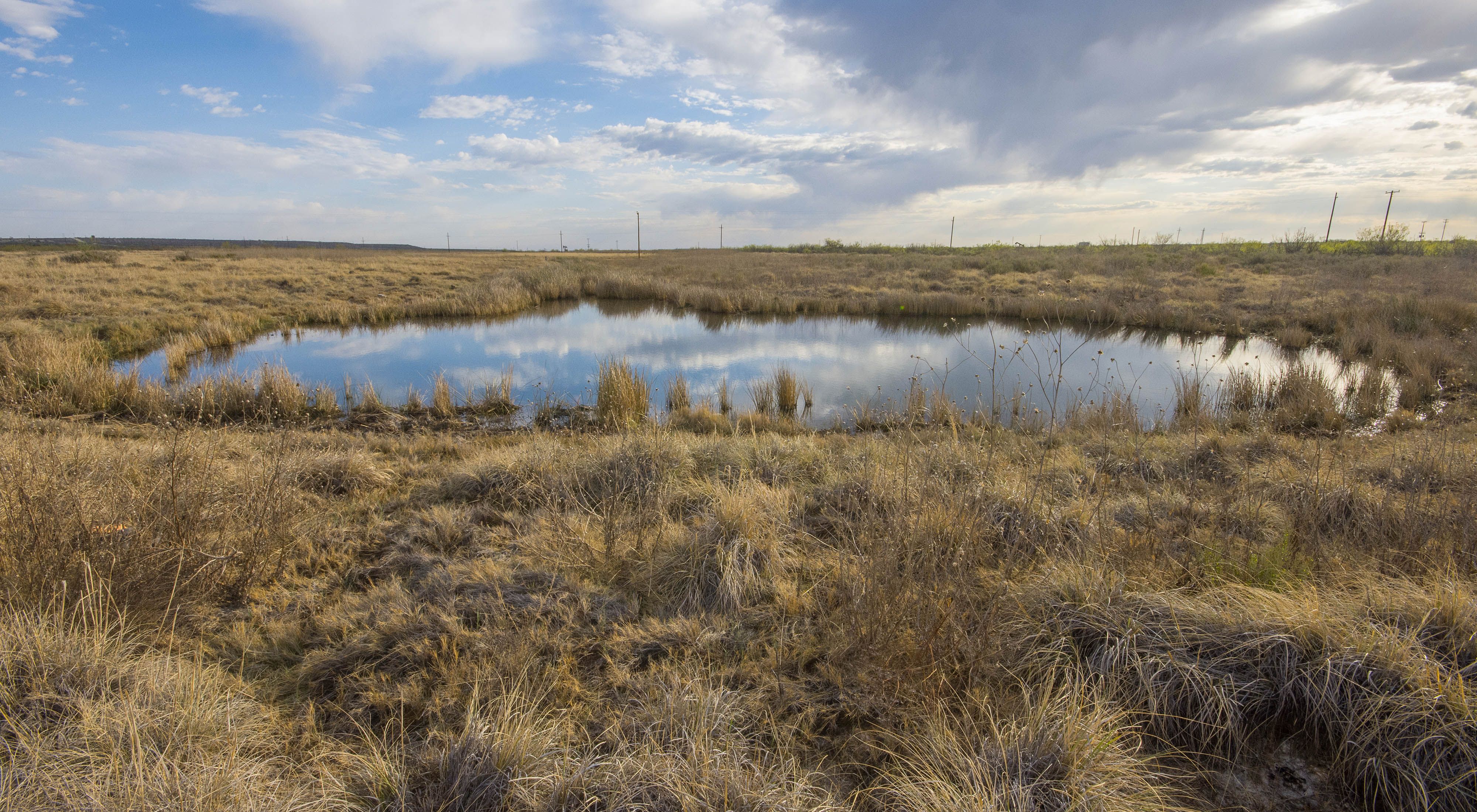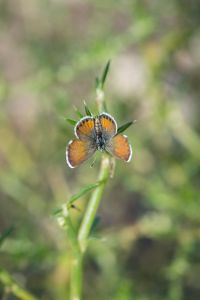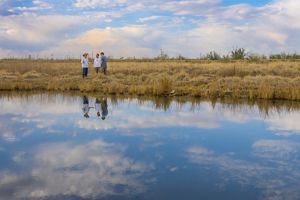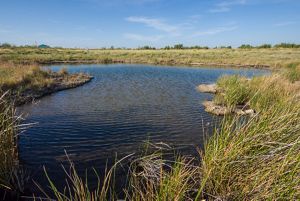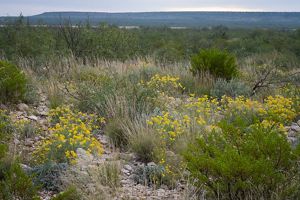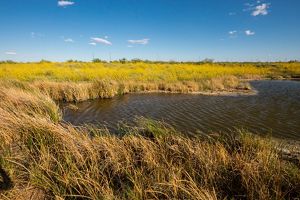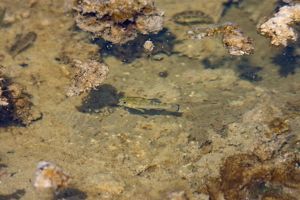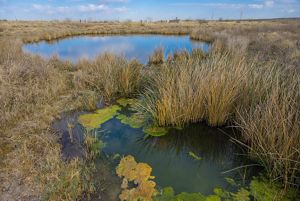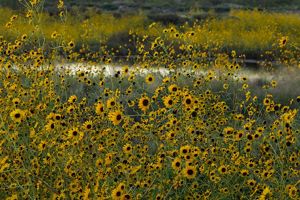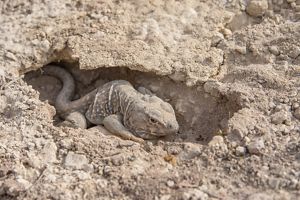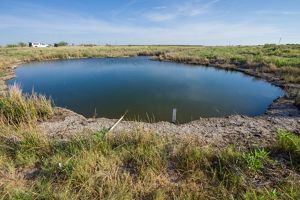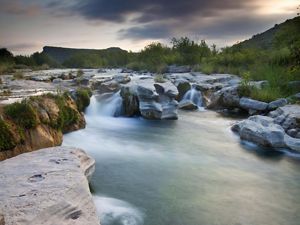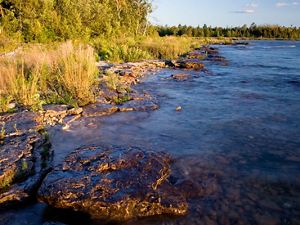TNC purchased the roughly 4,000 acres from a prominent Pecos County rancher M. R. Gonzalez, who was motivated to protect the pupfish, Pecos gambusia and the Pecos sunflower. The acquisition was an important first step in minimizing the myriad threats to this vital aquatic system, such as potential subdivision, runoff pollution and soil contamination from various sources, including regional oil and gas production.
Working with a range of partners, including the Middle Pecos Groundwater Conservation District, U.S. Fish and Wildlife Service, Lehigh University, the U.S. Geological Survey and Texas Bureau of Economic Geology, TNC has created an extensive water-monitoring program to track the preserve’s freshwater spring flows, water quality and the health of the pupfish and other species.
Strong science and collaborative action will help ensure Diamond Y Spring Preserve continues to shine as a proven conservation model for this delicate desert ecosystem.
